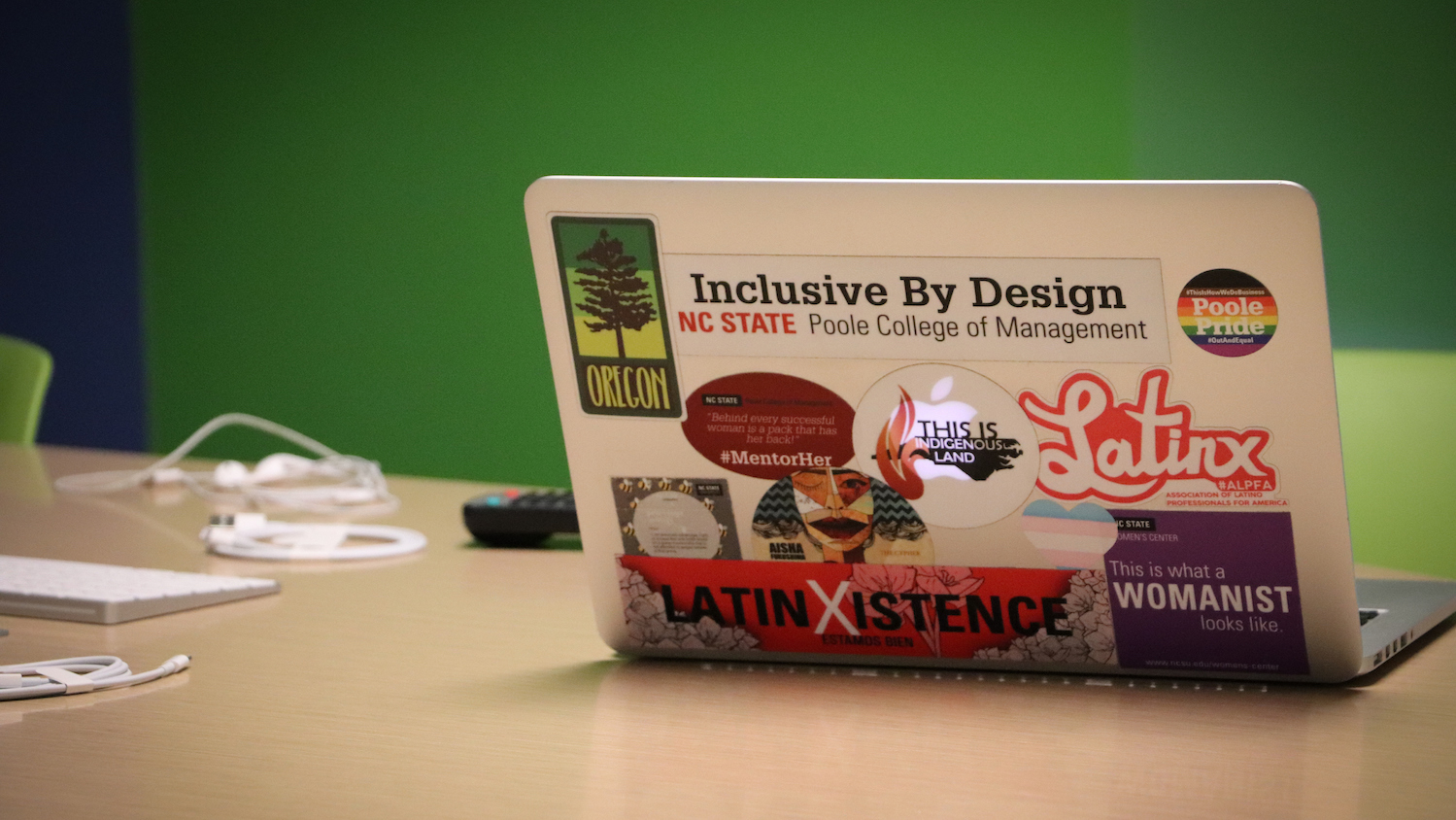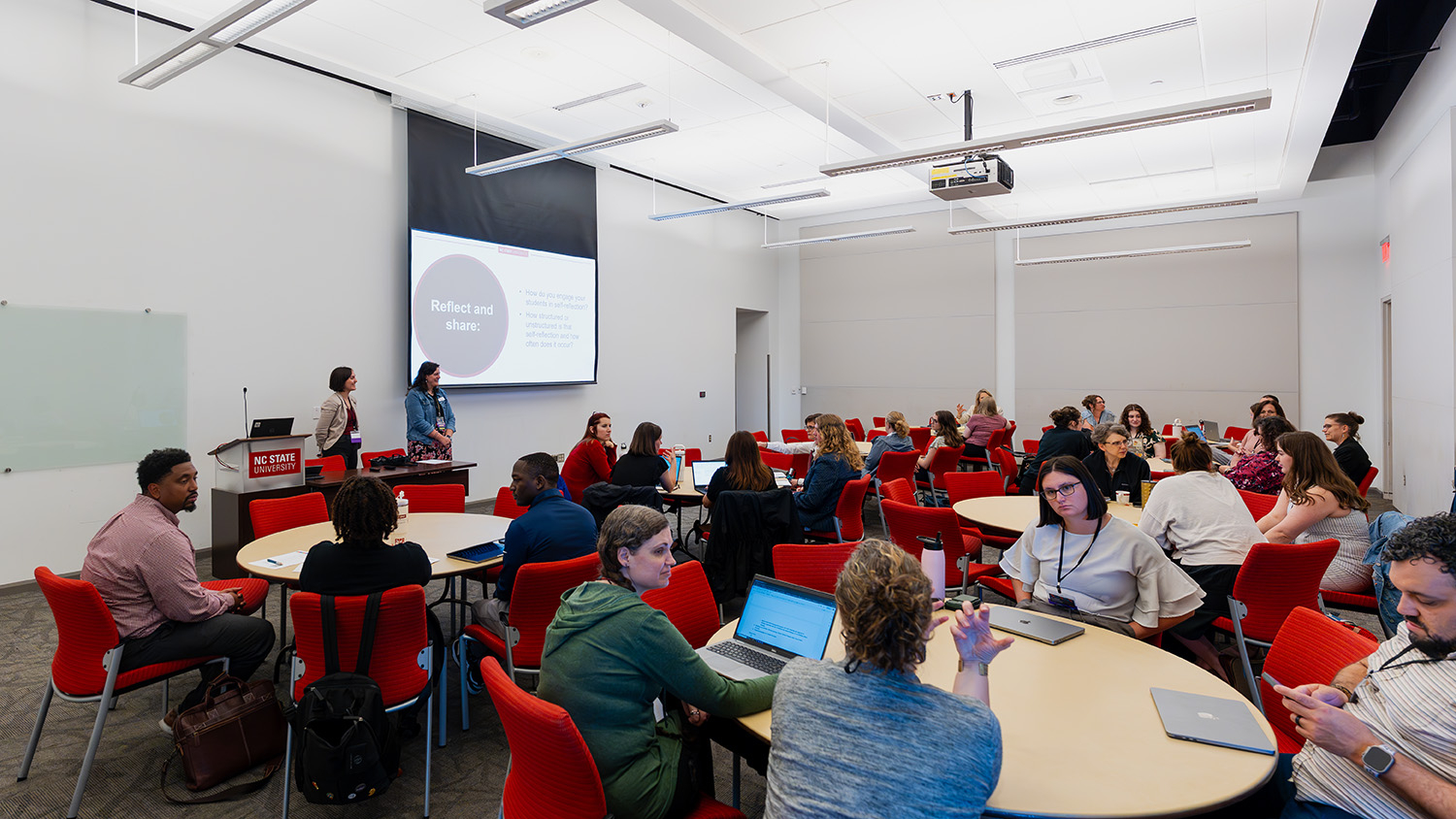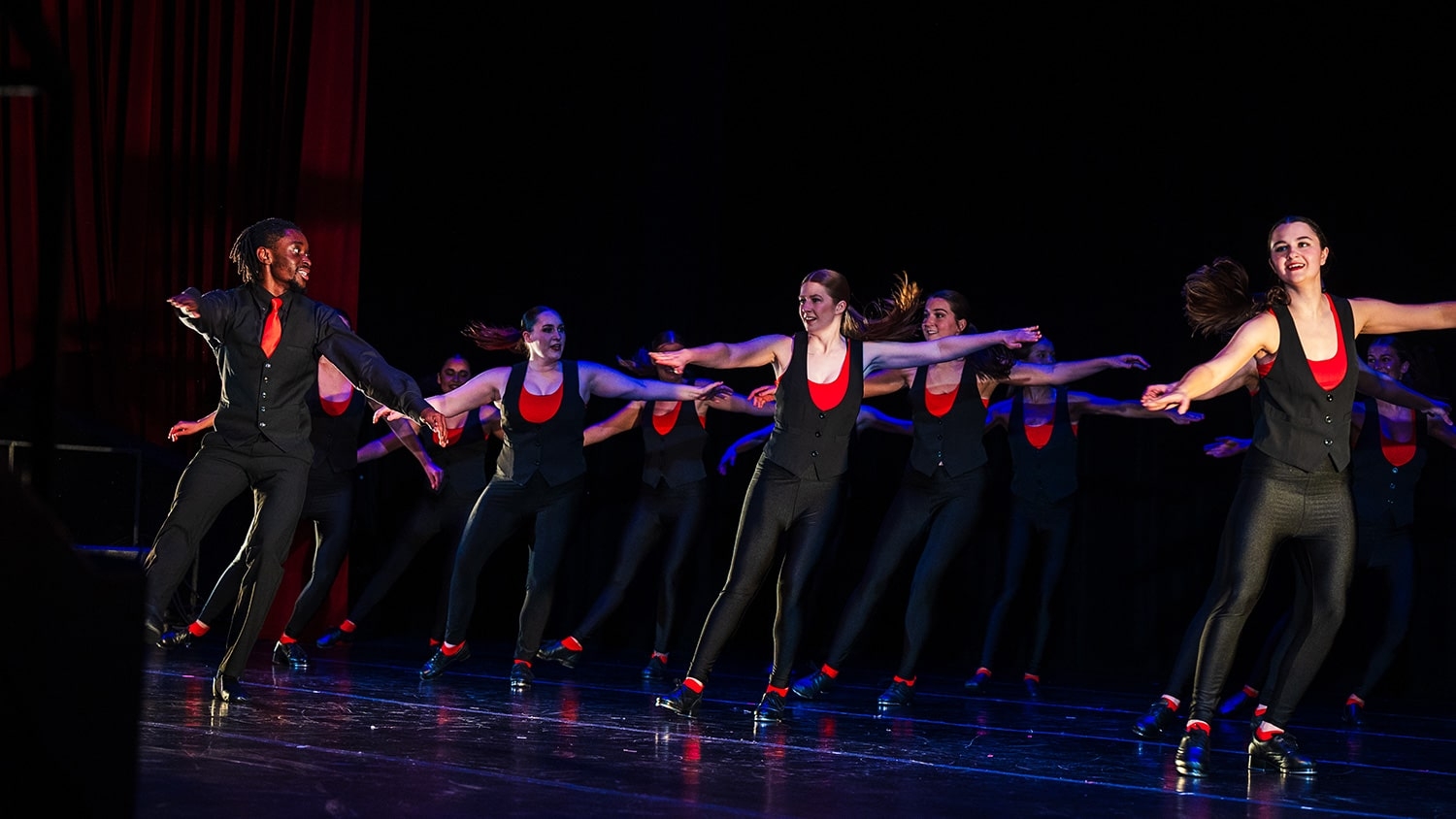A Holistic Approach to Learning and Development in Diversity, Equity and Inclusion
Grounded in a desire to grow toward the college’s established diversity, equity and inclusion (DEI) commitments, Poole College added new DEI training options to the Poole Pack Professional Development Series, a voluntary program for Poole faculty and staff that saw great success throughout the 2020-21 year.

This article was originally posted in the Fall 2021 edition of the Poole Business Magazine.
By Eliana Chow
During the summer of 2020, Dean Frank Buckless initiated a robust effort to help faculty and staff members cultivate a more equitable, inclusive environment at the Poole College of Management. He identified four key focus areas as a framework for developing DEI within classrooms and workspaces on campus:
- Creating an inclusive environment
- Increasing representation of faculty
- Increasing diversity content within curricular
- Increasing diversity of the student body
“These four strategic pillars will guide our journey toward building a more open, equitable space for every student, faculty and staff member,” Dean Buckless. “Change doesn’t happen overnight, but we’re moving the needle in the right direction.”
Change doesn’t happen overnight, but we’re moving the needle in the right direction.
At the start of the 2021-21 academic year, Dean Buckless invited a group of 11 faculty and staff members to form the first DEI Committee, appointing Tayah Butler to serve as Poole’s first college-level DEI director. Grounded in a desire to grow toward the College’s established DEI commitments, three members of this committee—Butler, Maggie Merry and Monique Meriweather-Yarborough—identified an opportunity to collaborate with Brian Thomas and Beth Shepherd. Together, the group added new DEI training options to the Poole Pack Professional Development Series (PPDS), a voluntary program for Poole faculty and staff that launched in 2019 to great success throughout the 2020-21 year.
“Even if you don’t align with some of the moral and ethical philosophies behind diversity, cognitive diversity is necessary to the success of teams,” says Brad Kirkman, professor of leadership and expert in teams and organizational behavior research. “If you care about the success of an organization, you should care about diversity. You should care about cultivating a culture in which people feel safe to be fully themselves, take risks, offer unique suggestions or push back on someone else’s opinion.”
Now, DEI is fully integrated into a new PPDS certificate, which rolls out this fall and will lead faculty and staff through four levels of skill-building for personal, professional, curriculum and research development.
- Building New Awareness
- Gaining Deeper Understanding
- Skill-building Application
- Ongoing Inclusive Leadership Development
Each level consists of topical lectures, focus groups, discussion-based readings and applied training that participants can use to customize their development as they pursue the certificate over the next few years. “The goal is for all our academic leaders to integrate DEI practices into everyday classroom and colleague interactions,” says Thomas, director of research development and administration. “But we must take that first step, offering different awareness exercises in a variety of topics and levels to ensure we’re all moving in the same direction, even if each person is moving at a slightly different pace.”
Poole is not the first higher education institution to create a DEI learning plan, but it’s rare to find an initiative that draws from research about adult learning to construct an accessible ladder participants can climb. According to Kirkman, 90% of major organizational change initiatives have good solutions, but up to 70% of those initiatives still fail to meet their intended objectives. “People are the biggest challenge when it comes to change,” he acknowledges, “because many adults simply aren’t equipped with the skillsets and thought processes needed to successfully navigate the constantly growing DEI space.”
Shepherd, director of instructional design, identifies clear connections between adult learning concepts and implementing DEI in the classroom. “We have to connect the material to a student’s previous learning and allow them to apply their personal experiences to the content,” she explains. “If we don’t acknowledge the diversity of our students, we ignore the unique perspective they bring to the course material, and so hinder their ability to learn. Equity means that regardless of the situation our students come from, we make it possible for them to succeed now.”
People are the biggest challenge when it comes to change because many adults simply aren’t equipped with the skillsets and thought processes needed to successfully navigate the constantly growing DEI space.
As Poole’s leadership looks forward to an upward trajectory of growth in the DEI space, Kirkman voices his hope that Poole can serve as an example for companies to build similar systems. “It’s one thing to recruit for diversity,” he says. “But leaders shouldn’t stop at hiring someone to increase diversity. Once that person is on the team, how will you ensure they can succeed and grow in your company? Setting up DEI-focused development could be key to the personal and professional growth of any person’s career.”
Butler recognizes this development plan may seem like a slow solution in a world that often wants to see immediate transformation in the DEI space. But she also emphasizes the importance of establishing a sturdy foundation for others to build upon in the years to come. “I would rather see us take our time now in order to be consistently effective later, than rush into on-paper solutions that crumble without any fundamental change at the personal and professional development levels,” she says. “In the end, we’re responsible for paving the way for a pipeline of the next generations of leaders, and that requires creating a place for them to thrive in all their individuality.”
- Categories:


